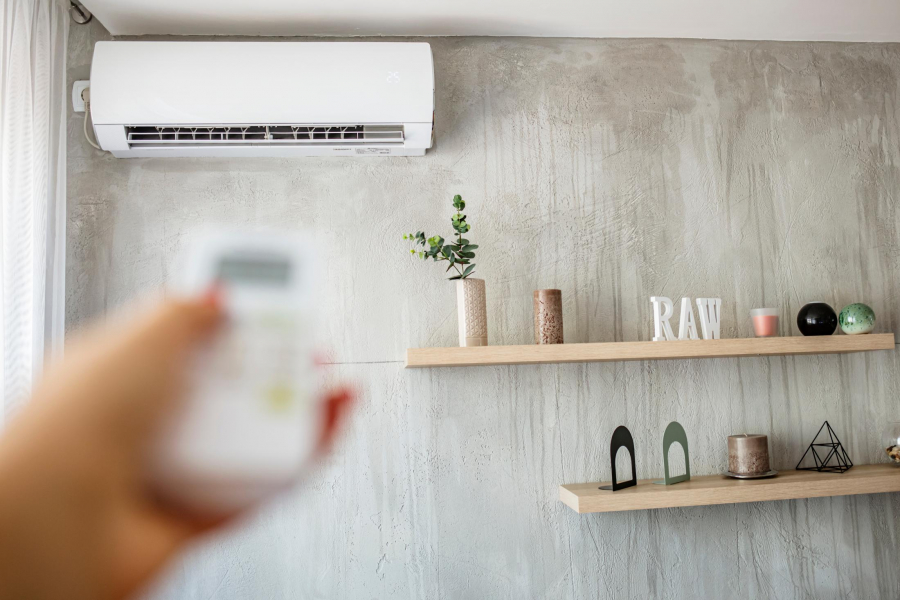
With Toronto at the forefront of many environmental developments, Canada hopes to significantly reduce its carbon footprint by 2050. TransformTO, Toronto’s climate action strategy, has developed solution-oriented initiatives to turn such a lofty goal into reality.
More specifically, TransformTO’s created several procedures to reduce local greenhouse gas emissions and, in turn, improve the city’s health, economy, and social equity. Thanks to TransformTO’s aggressive approach, GHG emissions were down 37 percent in 2018 versus 1990. While this figure is promising, more needs to be done on the environmental front to impact substantial change.
According to city officials, transformational changes in how Toronto residents live, work, build, and commute are necessary if the end goal is to live in a low-carbon economy.
Fortunately, Canada is making efforts to phase out natural gas for heating homes, which bodes well for a future sans fossil fuels. Unfortunately, some are reluctant to embrace the adaptation of heat pumps due to misconceived notions.
Below, we’ve debunked some common myths surrounding heat pumps in hopes of shedding light on how practical, reliable, and eco-friendly these appliances are.
Myth: Heat Pumps aren't Fossil-Free Heating Solutions
Contrary to a widespread belief, heat pumps don’t operate on the principles of burning fossil fuels. While traditional heating systems might rely on such fuels, heat pumps usher in a new era of eco-friendliness.
Instead of burning fuel, they simply transfer heat from the environment into your home. This process does away with the need for fossil fuels, exemplifying sustainable and green living. Opting for a heat pump not only diminishes your carbon footprint but also stands as a testament to the commitment towards a fossil-free heating future.
Myth: Heat Pumps Aren’t Ideal For Older Homes
Contrary to popular belief, heat pumps aren’t solely designed for newer homes. In fact, they’re a viable option for seemingly any property type. Not only are heat pumps an excellent retrofit option for older buildings, but they’re also ideal for homes that are harder to heat. With that said, heat pumps are equally effective when added to less modern or advanced homes.
However, some research is required to find the appropriate heat pump system for your home or building. For homeowners, your installer will consider the age of your property to identify any soft underbellies. From there, they’ll determine which system complements the inner workings of your abode. Meanwhile, when dealing with commercial properties, installers often account for occupants and their lifestyles.
If the property is older, insulation upgrades may be warranted. You may also have to make changes to your radiators and pipework. For optimal results, the layout of your home might have to be modified. No matter how incompatible a heat pump system may seem with your property, you can rework the situation. In essence, there’s a solution to every problem, making heat pumps suitable for every home.
Myth: Heat Pumps Are Costly And Increase Heating Bills
If you’ve long been fed the idea that heat pumps aren’t budget-friendly, rest assured that you’re not alone. In addition to being cost-effective, heat pumps are also more efficient than gas boilers. In other words, they cost less to operate.
When compared to the electricity that heat pumps use to run, they radiate much more heat. It’s for this reason why they’re four times more functional than gas boilers.
Though electricity is more expensive than gas or oil, heat pumps have a higher efficiency rate, so the operating costs are cut in half. What’s more, if you’re replacing an outdated system with an upgraded heat pump, your heating bill will likely be even cheaper. With that in mind, not only will you be saving money, but you’ll also be protecting the environment.
Myth: Heat Pumps Can’t Be Used For Hot Water
Both air-to-water and geothermal heat pumps can be used for hot water. The former works by absorbing heat from the outside air. Once absorbed, this heat turns into water. From there, the heat pump distributes heat through the wet central heating system. As a result, it provides hot water to your taps, bath, and shower.
The latter, on the other hand, absorbs heat at low temperatures from the ground. This heat is turned into a liquid inside a pipe that’s buried underground. Once created, the fluid passes through a compressor, which heats it up.
As the temperature rises, the liquid heats water for the hot water circuits in your home. Simply put, whether you prefer geothermal or air-to-water heat pumps, both can be used for hot water.
Myth: Heat Pumps Are High Maintenance
Though boilers don’t require a lot of maintenance, neither do heat pumps. If you’re apprehensive about parting ways with your boiler, take comfort in knowing that heat pumps don’t demand much attention or maintenance.
Typically, all that’s required is an annual checkup. If you take care of your system, you can expect it to last for 20 years. Much like a boiler, a little upkeep is all that's needed to ensure that your heat pump is operating correctly.
Myth: Heat Pumps Are Bulky And Take Up Too Much Space
Whether you’ve invested in a ground or air source heat pump, the biggest component of your system will be installed outside. Sadly, many homeowners have a distaste for heat pumps because of their bulkiness. However, since most of the system remains outside, you don’t have to worry about it compromising your home’s aesthetic or taking up too much space.
If you have ample garden space, ground source heat pumps can be laid horizontally in a trench. If you don’t have room to accommodate this layout, you can drill vertical boreholes to make your heat pump less visible. Bear in mind that these same tricks won’t work for an air source heat pump. For an air source heat pump to operate efficiently, the external unit needs to receive adequate airflow.
Otherwise, it won’t connect to the internal unit that pumps and circulates hot water. One other feature you’ll need is a hot water cylinder. If there’s no room on your property for one, a heat battery will suffice. A hybrid system that contains a heat pump and gas combination boiler is another alternative.
With the endless options that heat pumps offer, these systems are convenient for all properties. As heat pumps become more prevalent, Canada will be well on its way to fulfilling its goal of leading a low-carbon lifestyle and fossil-free heating.
---
If you're looking for a reliable and long-lasting heat pump, contact HeatPumps.ca. Our track record of faithful operation and longevity is a testament to our commitment to quality. Additionally, be sure to check out our heat pump rebates and incentives to save even more money.




